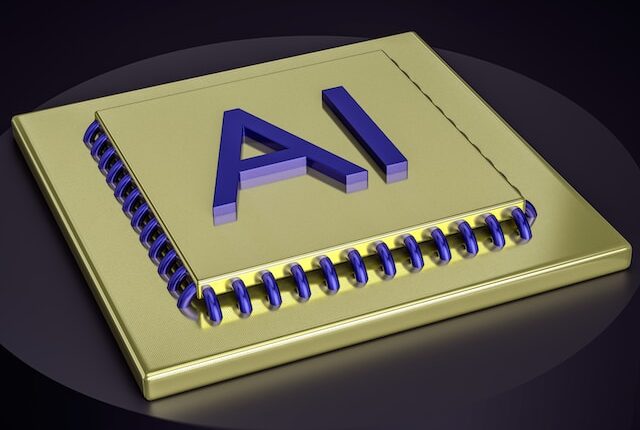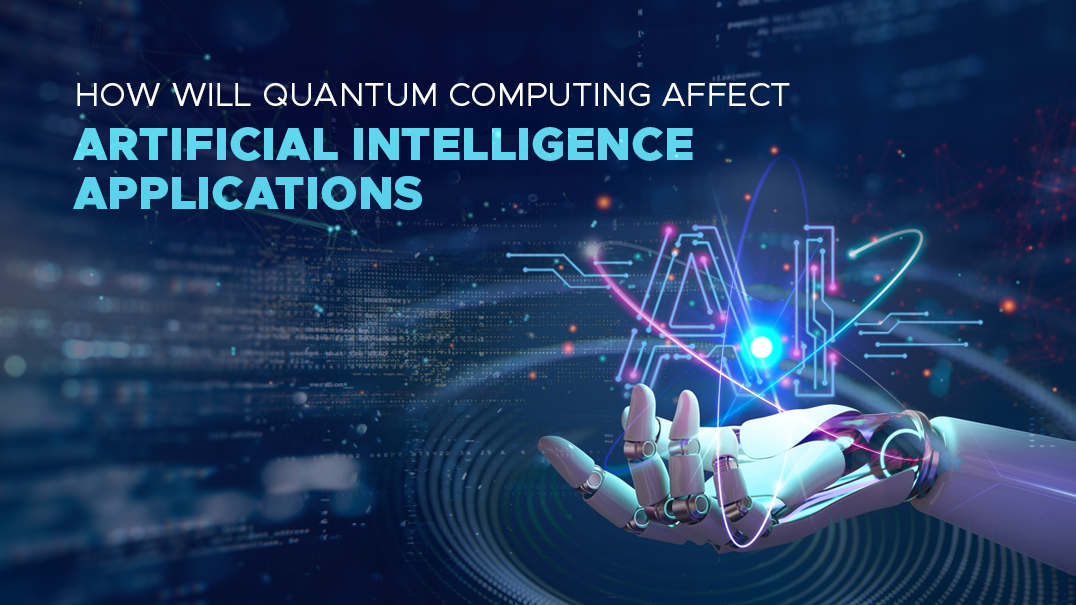How Will Quantum Computing Affect Artificial Intelligence Applications
Quantum computing will significantly impact AI applications by solving complex problems faster. This will enable advanced machine learning, optimization, and data processing capabilities.
As quantum computing technology continues to advance, the potential to revolutionize AI applications is becoming more evident. By leveraging the principles of quantum mechanics, quantum computing has the potential to significantly enhance the performance and capabilities of artificial intelligence systems.
This integration could lead to transformative advancements in various fields, such as healthcare, finance, and scientific research. Understanding the implications of quantum computing on AI applications is essential for businesses and researchers to prepare for the future landscape of technology and innovation.
The Basics Of Quantum Computing
Credit: www.nuox.io
Current Applications Of Artificial Intelligence
Artificial Intelligence (AI) has permeated various aspects of our lives, revolutionizing industries and enhancing user experiences. Today, AI is integrated into numerous applications, leveraging Machine Learning and Natural Language Processing technologies to solve complex problems. Let's explore how these current applications of AI pave the way for advancements in Quantum Computing.
Machine Learning
Machine Learning is an integral part of AI, where computers learn from data and make intelligent decisions without being explicitly programmed. It finds extensive use in various domains, such as:
- Finance: Machine Learning algorithms analyze trading patterns and predict market trends, aiding in investment decisions.
- Healthcare: AI helps in medical diagnosis, personalized treatment plans, and drug development through a deep understanding of vast amounts of patient data.
- Transportation: Self-driving vehicles utilize Machine Learning to perceive the surrounding environment, make real-time decisions, and enhance road safety.
Natural Language Processing
Natural Language Processing (NLP) enables computers to understand, interpret, and interact with human language naturally. Some current applications of NLP are:
- Voice Assistants: Siri, Alexa, and Google Assistant are powered by NLP algorithms that comprehend and execute voice commands.
- Customer Service: Chatbots use NLP techniques to understand user queries, provide relevant solutions, and improve customer support quality.
- Information Retrieval: Search engines utilize NLP to provide more accurate and precise results based on user queries.
These current AI applications serve as the foundation for future advancements by leveraging Quantum Computing to unlock new possibilities and solve problems that are currently beyond the capabilities of classical computers.
Challenges In Traditional Computing For Ai
Processing Power Limitations
Traditional computing currently faces significant limitations in providing the processing power required for complex artificial intelligence applications. Traditional binary-based computing systems struggle to handle the massive data sets and complex computations necessary for AI algorithms. This results in prolonged processing times and, in some cases, an inability to carry out advanced AI operations effectively.
Complexity Of AI algorithms
The complexity of AI algorithms poses a major challenge for traditional computing systems. These algorithms demand intricate calculations and decision-making processes that exceed the capabilities of conventional computers. The systematic demands of AI models often lead to extended processing times and suboptimal performance due to their complexity.

Credit: visionary-finance.com
Intersection Of Quantum Computing And Ai
The intersection of quantum computing and AI is a fascinating area with enormous potential for revolutionizing how AI applications operate. Quantum computing has the capability to significantly enhance the performance of AI algorithms, leading to unprecedented advancements in fields such as machine learning, natural language processing, and data analysis.
Potential Benefits
One of the key potential benefits of the intersection of quantum computing and AI is enhanced data processing. Quantum computers have the ability to simultaneously process and analyze vast amounts of data in parallel, significantly accelerating the speed at which AI systems can process complex information.
Enhanced Data Processing
The integration of quantum computing with AI will lead to enhanced data processing capabilities. Traditional computers struggle with the sheer volume and complexity of data required for AI applications. Quantum computing, with its ability to process massive datasets in a fraction of the time, will unlock new possibilities for AI to derive insights from large and unstructured datasets.
Impacts on the AI Industry
Quantum computing stands to revolutionize artificial intelligence by significantly enhancing processing power. This advancement can lead to the development of more sophisticated AI applications, enabling them to solve complex problems with unparalleled speed and efficiency.
As a result, the AI industry is poised for groundbreaking transformations as quantum computing continues to evolve. Artificial intelligence (AI) has witnessed remarkable progress in recent years, thanks to advances in computing power and algorithms.
However, the emergence of quantum computing is set to revolutionize the AI industry, bringing about unprecedented changes and opportunities.
Accelerated Development
With the integration of quantum computing and AI, one of the significant impacts on the industry will be the accelerated development of AI applications. Quantum computers have the potential to exponentially enhance the computational capabilities necessary for training and optimizing AI models.Disruption Of Current Models
The marriage of quantum computing and AI will disrupt current models and frameworks employed in the industry. Traditional AI algorithms that rely on classical computers may become obsolete in the face of quantum-powered alternatives.Ethical And Privacy Considerations
Ethical and Privacy Considerations:
Quantum computing's advancement raises important ethical and privacy considerations in the realm of artificial intelligence applications.
Security Risks
Quantum computing's power poses significant security risks to AI applications.
Data Privacy Concerns
Data privacy concerns amplify with quantum computing's capabilities in AI applications.
Future Prospects And Conclusions
Quantum computing holds immense potential to revolutionize artificial intelligence applications, enabling faster and more efficient processing of complex data. As quantum technologies continue to advance, the future prospects of AI will be greatly influenced, paving the way for groundbreaking developments and enhanced problem-solving capabilities.
Potential Evolution Of AI Applications
As quantum computing advancements accelerate, AI applications are poised to undergo a significant evolution. The combination of quantum computing and AI promises unparalleled capabilities.
Summary Of Key Points
Quantum computing offers enhanced processing power for AI tasks, revolutionizing industries. The potential synergy between quantum computing and AI ushers in a new era of innovation.
In the future, as quantum computing continues to advance, we can expect significant changes in how AI applications operate. The fusion of quantum computing with AI is set to unlock unprecedented potential, transforming various industries. This unique pairing of technologies will give rise to new possibilities that were previously unimaginable.
Credit: www.devopsbay.com
Frequently Asked Questions Of How Will Quantum Computing Affect Artificial Intelligence Applications
What Is The Impact Of Quantum Computing On AI Applications?
Quantum computing will revolutionize AI by solving complex problems exponentially faster, enhancing AI capabilities.
How Will Quantum Computing Improve AI Algorithms?
Quantum computing's immense processing power will enhance AI algorithms, leading to faster and more accurate predictions.
Can Quantum Computing Accelerate Machine Learning Processes?
Yes, quantum computing's speed and capacity will significantly accelerate machine learning processes and optimize AI performance.
What Are The Potential Challenges Of Integrating Quantum Computing With Ai?
Challenges may include compatibility issues, programming complexities, and the need for specialized skills to maximize benefits.
Will Quantum Computing Reshape The Future Of AI-powered Technologies?
Quantum computing has the potential to transform AI technologies, enabling breakthroughs in areas like healthcare, finance, and scientific research.
Conclusion
In a rapidly advancing technological landscape, integrating quantum computing with artificial intelligence (AI) applications holds immense potential. The ability of quantum computers to process vast amounts of data simultaneously and solve complex problems could revolutionize AI capabilities. As quantum computing continues to evolve, researchers and developers must explore the possibilities and challenges it may bring to AI.
With optimized algorithms and increased computational power, quantum computing could unlock new frontiers in AI, shaping the future of various industries and creating extraordinary opportunities for innovation.







